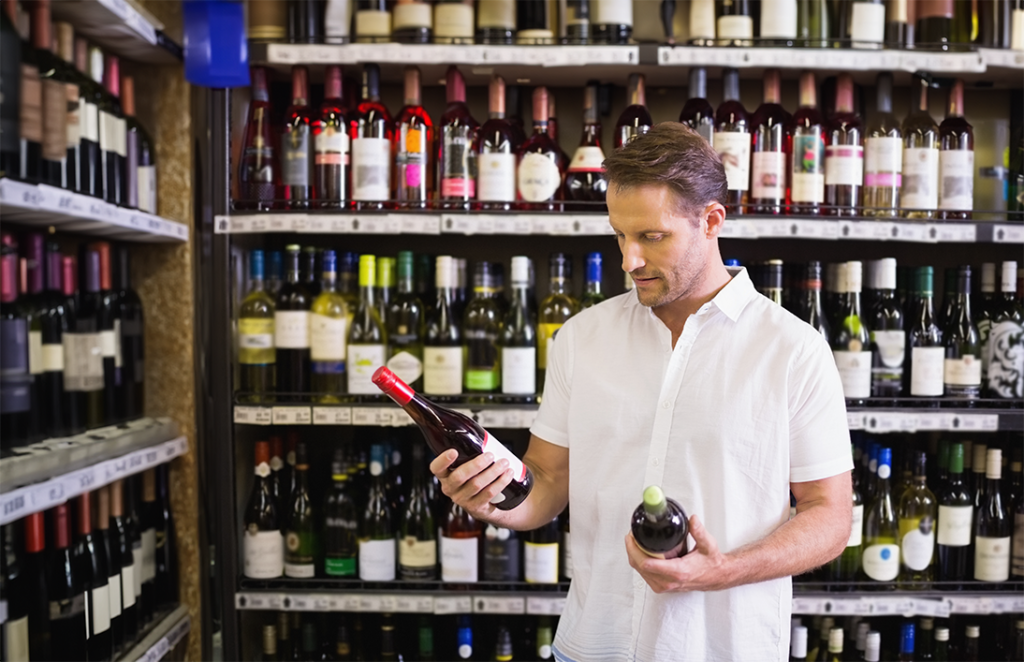As of December 8, 2023, the entire wine industry enters a new era of transparency. Winemakers, wine merchants, distributors… all will have to comply with new labelling rules requiring, among other things, the inclusion of a list of ingredients and a nutritional table. It’s a revolution that the industry needs to get ready for!
New wine labelling: what is going change?
Gone are the days of the minimalist wine label! Unlike other alcoholic beverages such as beer or cider, wine has always been the exception to regulation 1169/2011, which requires food information to be provided.
As of December 8, 2023, the new regulation 2021/2117 corrects this exception, bringing several major changes for the wine industry, whether in terms of the physical label or the descriptions present on e-commerce sites.
Who is affected by these regulations?
Winegrowers, producers, merchants, and distributors must apply these new rules to market their wines and wine-based alcoholic beverages (WBAB).
Which products are affected?
All wines sold in the European Union produced after December 8, 2023 will legally have to provide consumers with information on allergens, energy, ingredients and nutrition on their labels. Therefore, all wines produced and labeled before 08/12/2023 are not affected.
Why is this a key initiative for the sector?
In addition to the legal urgency forcing change, these rules also respond to the growing demand for transparency expressed by consumers. Producers and distributors are now required to provide customers with as much information as possible to help them make informed purchasing decisions.
For example, when a consumer in a store scans an electronic device (e.g. a QR Code) on a bottle of wine with his smartphone, he will be redirected to a page with regulatory information that includes:
- List of ingredients;
- Energy value via a nutritional table;
- Allergenic substances;
- BUT no information intended for sales or marketing purposes may be included.
How can players in the wine industry adapt?
« The new labeling rules require a certain amount of product information and reference points that they (winegrowers and cellarmen) cannot legitimately collect manually » Ghislain Esquerre, CEO of Equadis, in an article published in LSA.
Digitize quickly and comply with regulations
Digitization is the key challenge of the new regulations. The wine industry is a fragmented sector, with as many different players as different methods, but they all have one thing in common: the lack of data and its analysis.
For winegrowers, digitizing production is a priority:
- Improving and densifying data collection;
- Create more reference points for wine (ingredients, nutritional values, allergens, etc.);
- Acquire high-performance digital tools such as a PIM to simplify data collection, enrichment and management;
- Improve the exchange of compliant, quality data to numerous distribution networks.
For wine retailers, the imperatives will lie in catalog management:
- Develop an omnichannel strategy adapted to the challenges of the sector and the needs of consumers;
- Improve data collection for physical and digital catalogs;
- Acquire digital tools to improve data collection and management for a greater amount of data.
While winegrowers and wine merchants will have to work harder to comply with these new rules, retailers will have a less demanding adaptation phase to contend with. Their digital environment is already better adapted to the requirements of the various food information regulations.
A 2-year transition period
In order to implement the changes required for compliance, industry professionals have a two-year transition period from December 8, 2023.
This is good news, and should enable us to create the right conditions now to meet the growing need for transparency expressed through this regulatory change.
Equadis can help you through this transition:
As an expert in product data management, Equadis keeps up to date with developments in European wine labeling regulations.
Today, Equadis works with leading food groups and wine and spirits producers such as Les Grands Chais de France, Laurent-Perrier, La Martiniquaise-Bardinet and Champagne Taittinger.
What about you?
As an expert in product data management, particularly in the wine sector, Equadis was invited to share its expertise with the media:

